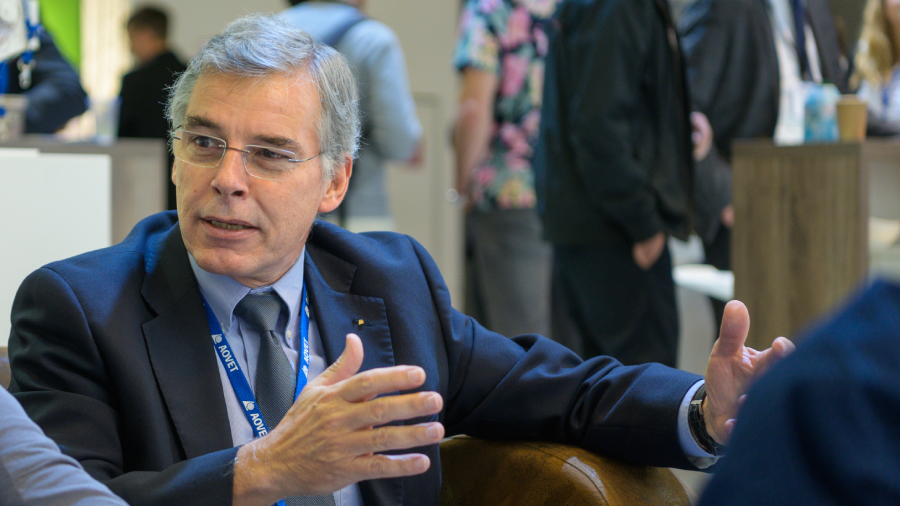Independent study affirms AO impact
The report by the Winterthur Institute for Health Economics at the Zurich University of Applied Science assessed the AO's impact in key areas.

Nikolaus Renner discussing the AO's health economic impact at DKOU 2019
The standardized application of AO principles has had a significant impact on patient care in bone fractures, delivering improved functional results, higher return to work rates, and decreased mortality, according to a peer reviewed study by the Winterthur Institute for Health Economics at the Zurich University of Applied Science.
This translates to significant productivity gains for society and a substantial amount of life years saved.
Education
- 65,000 surgeons have been trained at the AO Davos Courses since the first course in 1960
- 580,000 surgeons have been trained in AO courses internationally since 1965
- 8,700 courses (approx. 20,000 teaching days) have been delivered worldwide since 1965
- 7,800 surgeons have participated in AO fellowship programs since 1971
Patient outcomes
- Up to 4.6 million life years gained by the working-age population across 17 countries since 1958
- Up to 73 million life years gained by the population aged over 70 with proximal femur fractures, in 17 countries, since 1958
Health care savings
- 855 billion CHF in direct and indirect savings (mainly in productivity gains) since 1958 as a result of the application of AO principles in fracture care
- 1.1 billion CHF saved in health care costs in Switzerland for the population over 70 with proximal femur fractures, since 1958
- 69 billion CHF saved in 17 high-income countries since 1958
Scientific research
- 25,535 total citations for the two most cited core papers since 1996
- 300+ collaborations within studies and universities in the past 19 years
- Nine core papers in the top 1% of highly cited papers in their field in the past nine years
- The AO's earliest publications remain relevant to the research community
This far-reaching impact was achieved thanks to the AO principles and approach.
By providing structured education to surgeons to apply this technology, and by developing the technologies themselves, the AO set in place a ‘virtuous cycle’ that has made it possible for these advances to be adopted in countries across the world.
The study was commissioned by the AO, a leading innovator and premier provider of education in its fields, in its 60th anniversary year. The AO did not direct the execution of the research, and the study is fully independent and peer reviewed.

